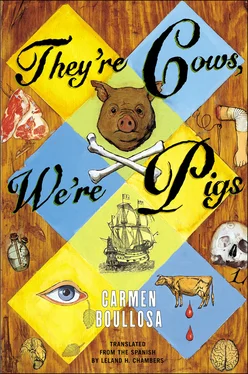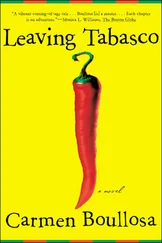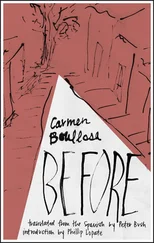He was attracted by the free life these men lead, loose in the forest, from what he had heard, without wives or children, for a year or sometimes two with perhaps a buccaneer or two for company. They care for one another if they get sick and they all share everything alike — sorrows, joys, whatever befalls them: a life spent in hunting and butchering the animals, drying their flesh in the sun and smoking it with green wood to sell to colonists on the neighboring islands or to Dutch ships and freebooters looking for ships’ stores. They dress in a garment, loose-fitting, down to the knees, wherein the kind of material it is made of is difficult to make out, being covered all over with clots of dried blood; it is secured by a belt which often holds four knives and a bayonet. But when Nau finds himself amongst the buccaneers, the leader prevents him from going on his own and for several months keeps him, under the threat of death, as his servant, treating him so badly that he becomes ill; for those buccaneers are extremely cruel to their servants, to such a degree that the latter would rather be rowing in the galleys or sawing Brazilian lumber in Holland’s Rasp-Huys than working for such barbarians. One day he is unable to follow his master because he is so sick, bent to the ground, nearly, under heavy bags of gunpowder and salt; a master so cruel that in a wrath he strikes Nau on the head with his musket, half killing him, and, thinking him really dead, he leaves him behind with the fireflies and three dogs for his only company. The fireflies illuminate the area around him on the dark nights, their bodies glowing with an intense light such as we have never seen emitted from any insect’s body in all of Europe; and the dogs take care of him, feeding him by hunting wild pigs until, helped on by eating raw meat, he finds his precarious health is restored and wounds are healed, the animals with their kindness having rubbed away the effects of his master’s beatings and soothed the fevers that he also owed to the vicious buccaneer’s brutal treatment. For months Nau carries on a solitary existence, which is broken off when another pair of buccaneers run into him and they feel sorry for him and appoint him a buccaneer as well, teaching him first of all to eat cooked meat and prepare it as they are used to, the way the Arawak Indians do it, in the form called
boucan , which we just described; and also to manufacture their own footwear, themselves fashioning their moccasins in the following manner: just after killing a pig or a bull, having flayed it they place their foot inside the part of the skin that used to go around the animal’s leg, fitting their big toe into the area where the animal’s knee used to be, bringing it up above the ankle about four or five centimeters, and there it is tied; this done, they allow it to dry on the foot and take on its shape.
Nau was a very capable hunter, but another form of life called out to him, as it was more audacious, adventuresome, and cruel, and thus he abandoned the company of the buccaneers, yet not without first splashing his erstwhile master’s brains on the ground of his hut, employing a well-delivered and well-deserved blow of his ax as the man slept.
I was also an associate of Henry Morgan, the most famous of the English pirates in the Caribbean, who, according to what I learned from the horse’s mouth, was the son of a rich, honest farmer but was disinclined to follow in his father’s footsteps and so signed on with some ships bound for the island of Barbados, with the intention of going into service with someone who later sold him. That is what I was told, but many years after giving this out for a fact, Henry Morgan forced us — the editor and myself — to add a paragraph in the book: “Exquemeling is mistaken concerning the origins of Sir Henry Morgan,” it was necessary to incorporate into the English edition. “The latter is the son of a gentleman of ancient nobility from the County of Monmouth, and he has never been servant to anyone except His Majesty the King of England.” Well, do tell! By that time the traitor Morgan was so rich and powerful that he was able to appoint himself the son of whomever he wanted. It is quite another thing for anyone to believe him. I, with the eyes and ears of J. Smeeks, the only thing I can do in this respect is not to speak at all about the traitor Morgan in this book, and dedicate all its pages regarding our sojourn in the Caribbean to the memory of le Nègre Miel and to telling about Pineau, the men from whom I learned the profession and the true Law of the Coast.
For a pair of eyes and a pair of ears to fix images and sounds in the temporal order in which they happen is no easy task; their memory enjoys making fun of the tyranny of time. But even though images may leap up pell-mell before us, like the sight of birds pecking at the crabs and devouring them on the sand of some Caribbean island (thus corrupting the flavor of their tender flesh with the crabs’ own bile that blurs the vision and darkens the minds of folk who eat them to excess), or the sound of their strong beaks, like thunder crackling, breaking up their shells, I will attempt to rein them in and start at the beginning of the story I wish to tell, with the moment Smeeks sets his two feet on the deck of one of the thirty ships of the French West Indies Company in a rendezvous at Cape Barfleur, bound for Senegal, Terranova, Nantes, La Rochelle, Saint-Martin, and the Caribbean; on a ship named the Saint Jean , with twenty-five guns, twenty sailors, and 220 passengers, headed for the island of Tortuga, whose governor in that year of 1666 must have been Bertrand d’Ogeron, who would give us more than one reason to hate him.
We weigh anchor the second of May. Many other young men like Smeeks are aboard, young fellows who have begged on the streets, worked as servants, been sold away by their families; youths whom the colonist farmers or the Company have engaged as indentured servants for a three-year stint: lured by the riches of the West Indies, the adventure, a new land both unknown and different, but above all, by the notion of getting away from Europe, so little generous to us. But the Saint Jean does not carry only sailors and youths; there are soldiers, too, signed on to defend the interests of the Company, merchants, older men who do not know exactly what they will face there, some with experience on many voyages but most of them undertaking their very first one, adventurers of various sorts, colonist farmers who have gone to bring back laborers, representatives of the King with their servants and secretaries who are making the trip in separate cabins … To be frank, Smeeks has enough to do with his own concerns without taking a close look at the Saint Jean ’s 220 passengers: Smeeks does not spend time watching those who are going with him or those traveling in a different state; Smeeks uses this first stage of the trip, a time so different from that on dry land, more stretched out and monotonous, to try to catch up with himself. A few afternoons ago he was a boy of thirteen, wandering pointlessly around Flanders, sometimes as a servant if fortune smiled on him (even with unusually good luck, such as when I learned to read and write with a priest who seemed to think of me as more than a servant, and more than a boy), sometimes surviving by the skin of my teeth, carrying packages, transporting goods around the port — but always outside the house where I had grown up as a boy and which was neither my father’s house nor yet my mother’s, where I had never been treated decently or fed well enough to allow my stomach any peace, a house where I was no longer permitted to sleep, but around which I had taken to wandering. I knew it was senseless, served no purpose, as no one was waiting for me within, there was nothing for me there; nor were they disposed to continue putting up with a nuisance who was already thirteen years of age and who for the past five years now had already been scraping along on his own, tooth and nail, and who ought to continue scraping along on his own — and if he scraped up enough why should he not be bringing food home? My first job was as a servant, a servant’s servant, to be more precise, but it did not last long because I had the good fortune to run into the priest who … But why keep going back? There in the patio behind the years is no recollection worthy of being brought into the present, nor anything that in any way helps along the story I wish to tell: the story of Smeeks in the Caribbean. So, to make headway, I will rejoin the voyage during which Exquemeling is trying to be reunited with himself, trying to get accustomed to the idea that he is the boy gazing patiently down at the grain of the wooden planks of the deck covering the hold where the youths sleep while aboard, as if in its striations he were gazing at the sea scraping at the stubborn pitch sheathing the hull below the waterline; though in reality, with his fixed stare, he is not gazing at this at all, as wood is not like the waters of the ocean.
Читать дальше












